
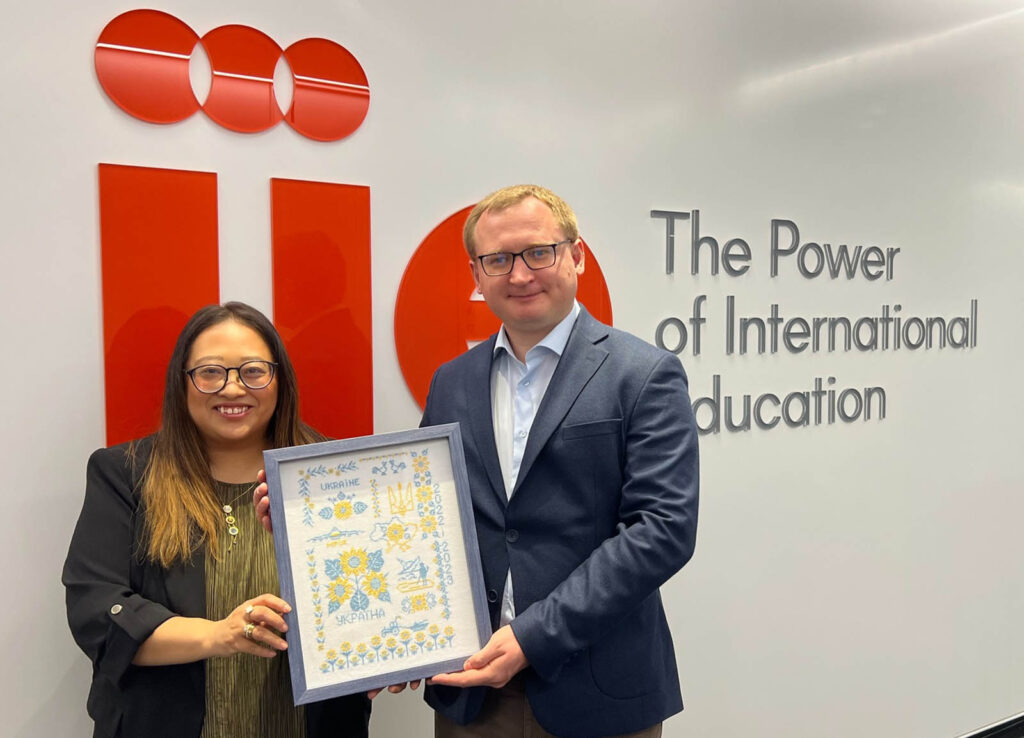
Sustainability, Development, and Hope for the Future
Assessing the Impact of the Invisible University for Ukraine
January 15, 2023
Nazarii Stetsyk, IIE Centennial Fellow 2022-2023
IIE selected Professor Nazarii Stetsyk as a 2022–2023 Centennial Fellow to lead educational and research programming in support of displaced Ukrainian students seeking to reconstruct the country post-war. His vision: for Ukrainian students to return to and rebuild their country “in accordance with the values of democracy, human rights, and rule of law.” Stetsyk is among four of fellows leading projects designed to support refugee and displaced groups, including those from Afghanistan, Nepal, and Nigeria.
A year has passed since I was awarded the IIE Centennial Fellowship to support the CEU Invisible University for Ukraine project (focused on the rule of law and human rights). It is now time to reflect on its impact, both in the short and long term, for both displaced Ukrainian students and myself. The Fellowship has impacted me the most in the following dimensions: ensuring sustainability, enhancing professional development, and fostering inspiration for the future.
Ensuring the Endurance and Sustainability of Higher Education for Displaced Ukrainian Students
The IIE Centennial Fellowship played a crucial role in guaranteeing higher education for displaced Ukrainian students could endure through the challenges of war. The Invisible University for Ukraine was designed from its inception to address the gap in interrupted education for Ukrainian students and encourage its continuation. The human rights and rule of law section, supported by this Fellowship, effectively maintained educational continuity for Ukrainian law students from diverse institutions and regions – primarily from the South and East, but from throughout the rest of Ukraine as well. Students were actively engaged in remote classes, spanning 12 weeks, by renowned foreign and Ukrainian experts in relevant legal areas. Classes allowed students to sustain continuity and consistency in acquiring fundamental and advanced legal knowledge. Experts covered current issues of illiberal democracy, populism, and political polarization, challenges of the digital age for human rights, institutional capacity building in Ukraine according to European standards, in particular, the Constitutional Court of Ukraine and the judiciary, on issues of criminal law, business and human rights, migration, legal accountability during wartime and post-war reconstruction. Furthermore, Ukrainian students receiving research stipends and Ukrainian instructors obtaining monetary rewards for their participation also found crucial support for their financial predicament during this challenging period for Ukraine.
Strengthening Professional Development and Connections
Numerous students mentioned in their feedback during the survey and through personal communication that their participation in this project deepened their professional development and broadened their horizons. Many issues presented and discussed during classes were quite new to them and shed new light on long-standing problems and questions. Topics like the advantages and threats of artificial intelligence and algorithms in the legal sphere, the interaction of business and human rights, and legal challenges related to war and transitional justice generated significant interest and sparked passionate discussions with lecturers. I have heard from multiple students about their delight in engaging with eminent and distinguished professors of law, with whom they would not have had the opportunity to interact under normal conditions. Additionally, the students established working relationships with each other, exchanging their perspectives and impressions during mentoring classes. In this regard, I should note that I also had a unique opportunity to study together with students and establish close professional contacts with many foreign colleagues.
Inspiration and Hope for the Future
Last, but not least, this project has offered Ukrainian students hope for the future – both their personal future and that of a whole Ukraine within the democratic and free community of European states. Throughout the implementation of this project, Ukrainian students have become firsthand witnesses to the strengthened Ukrainian integration into the European Union. In every lecture, students received inspiration and support from all lecturers, emphasizing the importance of upholding the values of democracy, human rights, and the rule of law. The message that the coming generation of Ukrainian lawyers will play a crucial role in building a new Ukraine has been firmly ingrained in their minds and hearts. Therefore, I am firmly convinced that in the long term, Ukrainian law students, having acquired valuable professional competence and possessing a vision for the future of Ukraine, will be able to achieve and realize these universal ideals and values.
This significant positive impact of the project prompted me to visit the New York office of the Institute of International Education and personally express my deep gratitude and appreciation for the valuable support by IIE Centennial Fellowship 2022-2023.
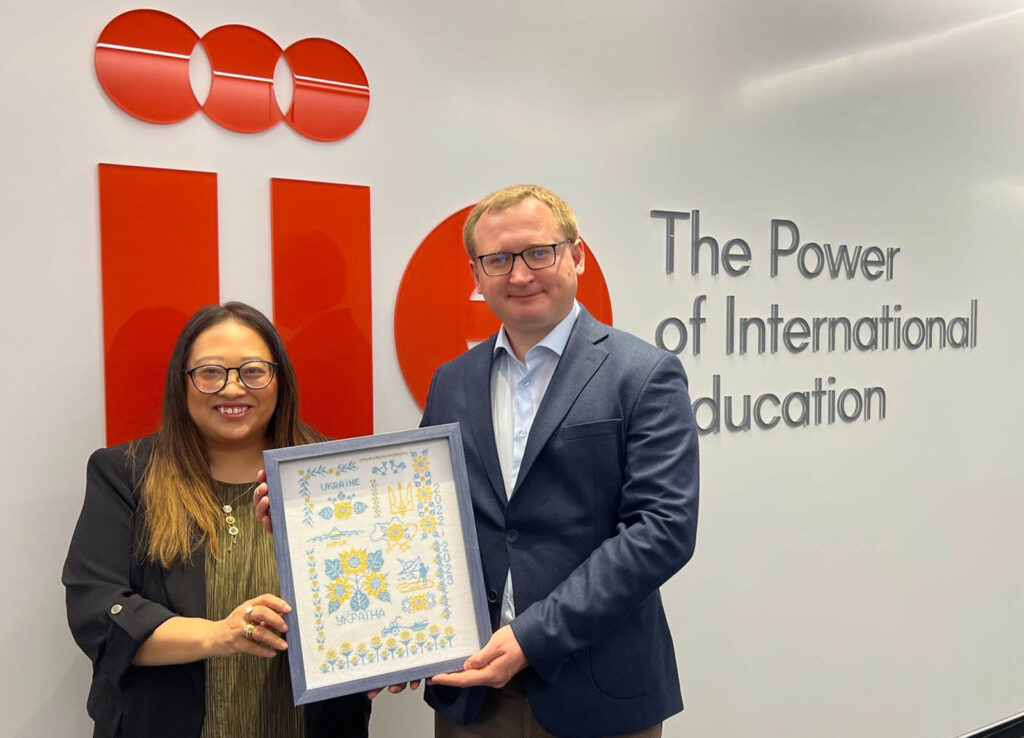
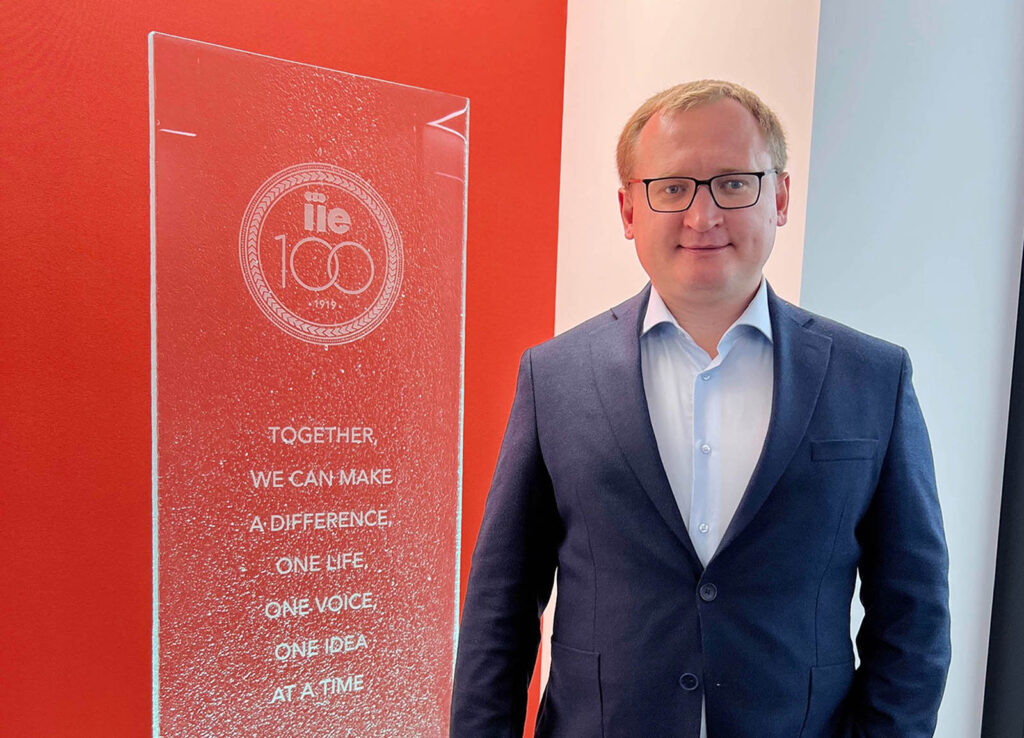
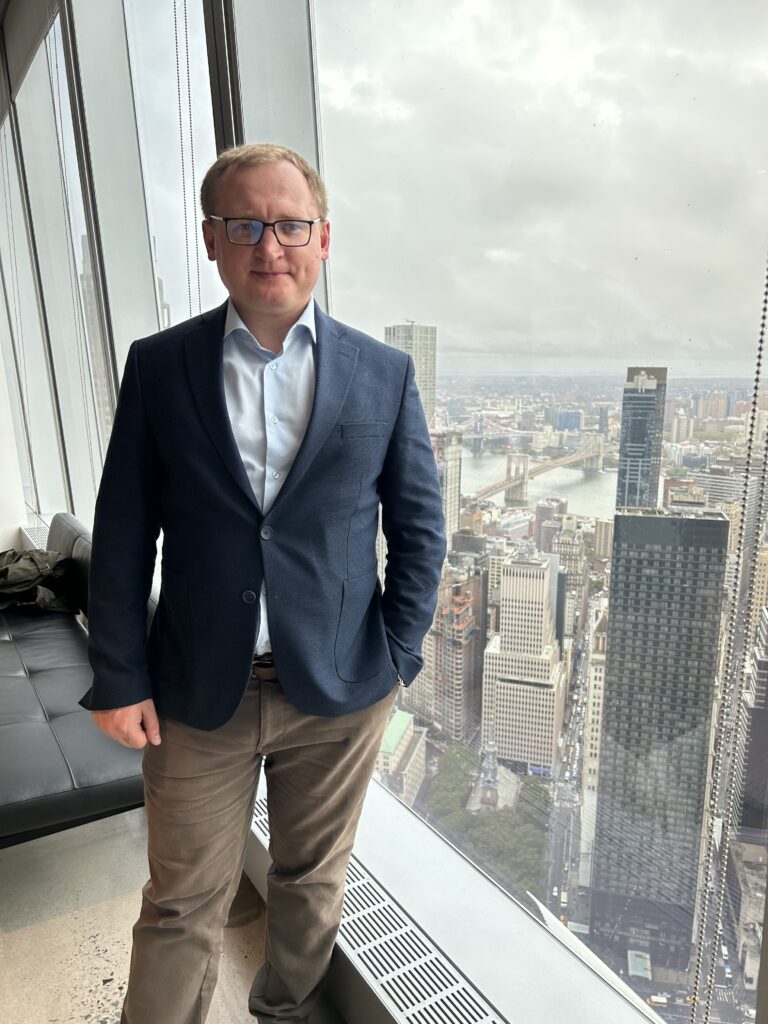
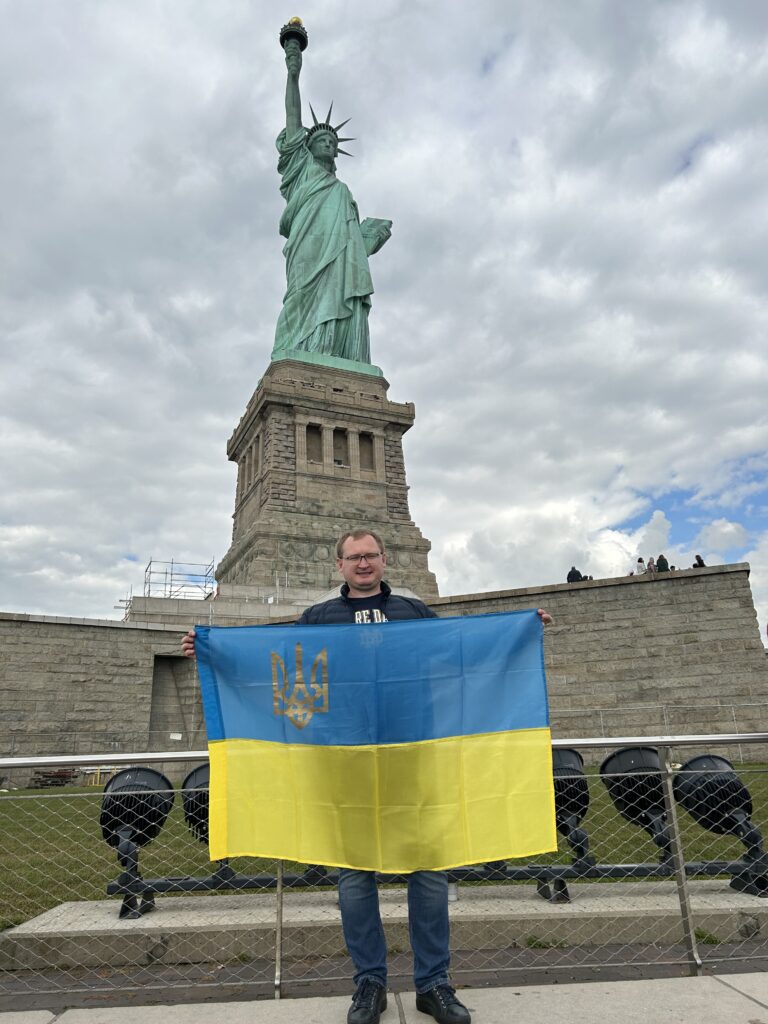
Nazarii Stetsyk is an Associate Professor of Law at Lviv National University (Ukraine), specializing in legal theory, rule of law, and human rights. As a 2020–2021 Fulbright Visiting Scholar to the University of Notre Dame School of Law, he implemented the Fulbright Research and Development Program, where he explored U.S. Supreme Court case law on issues of ensuring its consistency and development. After the Russian invasion of Ukraine in February 2022, Professor Stetsyk co-organized the project for displaced Ukrainian students, “Invisible University for Ukraine,” under the leadership of the Central European University in Budapest-Vienna.
Named in honor of IIE’s Centennial and association with the Fulbright Program, the IIE Centennial Fellowship seeks to help enhance Fulbright as a life-long experience and recognize alumni whose work embodies the program’s underlining values of mutual understanding, leadership, global problem solving, and global impact.